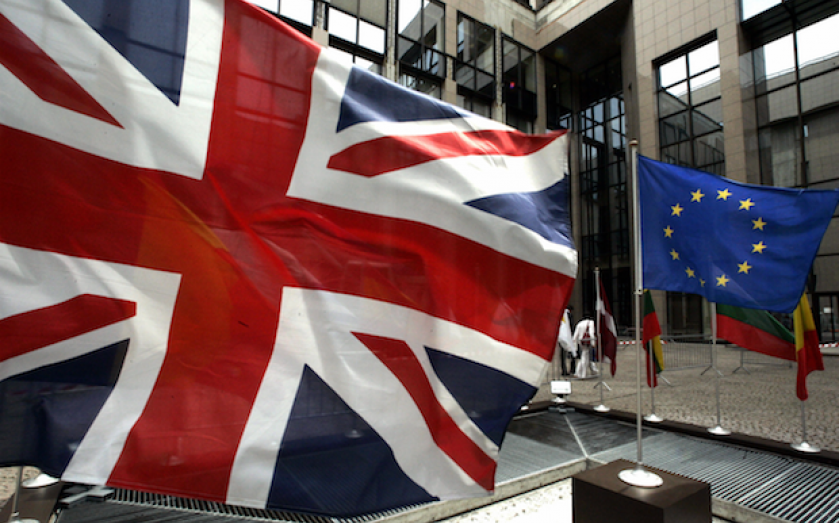The 7 issues Clegg and Farage must tackle in EU debate

As Nick Clegg and Nigel Farage prepare to go head to head over Britain's membership of the European Union, LBC listeners will be waiting eagerly to see which arguments the two men use to land their best blows.
In terms of what is most important for Britain regarding EU membership, here are seven of key issues for Nick Clegg and Nigel Farage to debate:
Free movement
One of the touchstones of the European debate has been immigration. The issue remains shrouded in half truths and distortions more focused on xenophobia than economics. EU citizens currently have the freedom to live and work in any other member state. Open borders is one of the EU's four fundamental freedoms and is unlikely to be dropped in any renegotiation of membership.
Free movement of labour has provided tremendous benefits to both the UK and the European economy. Far from being a drain on Britain's burgeoning welfare state, European migrants paid a staggering £2,610 more in tax than they collected in benefits each year between 2007 and 2011.
Cinzia Rienzo of the National Institute of Economic and Social Research found that increased levels of migration also led to gains in productivity of between 0.06 and 0.07 per cent.
Common Agricultural Policy (CAP)
In the wake of a letter from 27 Anglican bishops demanding David Cameron address the cost of food, Nick Clegg and Nigel Farage would do well to focus part of their debate on the EU policy that is driving up the price of food and hitting the poorest hardest – the Common Agricultural Policy (CAP).
CAP provides an array of subsidies to European farmers as well as imposing draconian tariffs on foreign produce. On average, European farmers derive more than a quarter of their income from state subsidies. These tariff barriers raise the price of food in Britain by an average of 13 per cent, according to the World Trade Organisation.
Bank bonuses
The EU's cap on banker bonuses is a punitive, anti-competitive measure to tackle a poorly defined problem. Under the new rules, no banker can receive a bonus larger than their annual salary. If a majority of the bank's shareholders vote in favour, then the bonus ceiling can be raised to double their annual salary. The cap poses a particular problem for the UK, given the importance of financial services to the British economy.
The measure may not even achieve its stated objective. In January, ratings agency Fitch said the effect of the cap will be to increase fixed pay, adding to banks' costs and driving them out of low-margin business.
Trade
The EU acts on behalf of its members when it comes to trade, with its own seat at the World Trade Organisation.
As trade talks between the US and EU continue to move at a snails pace, the leader of Ukip may be inclined to ask the deputy prime minister why it is beneficial for the UK to belong to an organisation which bars it from unilaterally signing free trade agreements with countries such as the US and India?
Financial transactions tax (FTT)
The EU's push for an FTT would hammer UK savers to the tune of £3.6bn, according to research carried out by London Economics. The tax would apply a 0.1 per cent charge against the exchange of bonds and shares as well as a 0.01 per cent charge across derivative contracts.
Although Britain is outside the direct reach of the tax, UK equities and bonds would still be affected. Britain is especially vulnerable to such taxes as more than half of UK household savings are held as financial assets, compared to 17 per cent in the euro area as a whole.
Red tape
UK businesses are struggling to cope with the waves of new regulation being passed by the Brussels bureaucracy. Since David Cameron came to power, businesses have had to endure an onslaught of 3,500 EU regulations amounting to 13m words, according to the campaign group Business for Britain.
The think tank Open Europe estimates the 100 most expensive EU regulations alone cost the UK £27bn a year. It has been estimated that EU regulations cost the UK economy £124bn between 1998 and 2010.
Common Fisheries Policy (CFP)
The CFP opens Britain's waters to all of Europe's fishing industries, as well as setting quotas of the type and amount of fish member states are allowed to catch. The CFP is managed communally without any particular responsibility, with fish stocks defined as a "common resource."
The lack of ownership over fish stocks has created a series of ecological and financial problems for the UK's fishing industry. In 2009, the total cost of the CFP to the UK was estimated to be in the order of £3bn. If the tragedy of the commons persists in UK fisheries the damage done could come close annihilating the UK's fishing sector all-together.